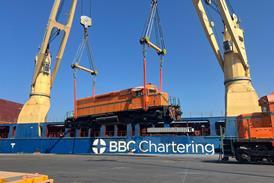Maritime law firm Hill Dickinson has warned that the shipping industry needs to be prepared for potential restrictions in order to prevent the further spread of coronavirus, which has originated in China.

Beth Bradley, a partner at Hill Dickinson, said: “While this outbreak is not currently anticipated to cause the global complications experienced by the Ebola and Sars outbreaks, it is wise for ship operators and charterers to be prepared for any greater spread of this virus.”
Issues arising from potential escalation can include infection of crew members, quarantine measures, closure of ports, and possible repercussions on charter party obligations.
In relation to the safety of the crew, employers have a duty of care towards the crew under their employment contracts, and a breach of such a duty may lead to exposure to a variety of claims. Under time charter parties, when a vessel is delayed by quarantine or is forced to deviate due to an infected crew member, the vessel may be placed off-hire, subject to the wording of the charter.
According to Hill Dickinson: “Common wordings of charter parties have been held to place the vessel off-hire due to legal or administrative restraints if they related to the efficiency or condition of the vessel or crew. In spite of this, should the delay be the inevitable result of orders resulting from how the charterers chose to employ the vessel, the vessel may remain on hire. The outcome in each case will depend on the facts and the wording of the charter party.
“Under voyage charters, a deviation for the safety of the crew will be at the shipowner’s expense as no additional freight may be payable unless, under the Hague or Hague-Visby Rules, a ‘reasonable deviation’ defence is successfully raised.”
Charterers are also under an obligation to nominate a safe port and risks to the crew – such as a contagious disease – may render a port unsafe. Hill Dickinson explained: “The safety of a port depends greatly on whether proper precautions and protective measures are in place to ensure that a vessel can call at the port without risking infection of its crew. Such measures were taken during both the Ebola and MERS outbreaks, and numerous ports remained open despite being affected by the outbreak.
“At present, the Wuhan virus is not at a stage where it may render a port unsafe, and the severity of the outbreak would need to escalate significantly before owners could reasonably refuse to call at scheduled or nominated ports on the basis of the ports being unsafe.”
Hill Dickinson paralegal John Agapitos concluded: “At this time, there have only been internal transport bans affecting certain Chinese cities around the centre of the outbreak. There has not yet been a travel ban to China or any other neighbouring countries. It is unlikely that any given situation will fall within the scope of a force majeure clause, unless the wording of a particular clause is quite broadly drafted. However, if the outbreak escalates in the future and/or travel bans are imposed, questions of whether it amounts to a force majeure event may come to the fore."
















